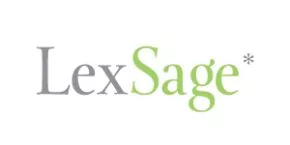The reliability and safety of Canada's food supply chain has become increasingly important during these unprecedented and challenging times. The Government of Canada has imposed temporary border restrictions designed to protect Canadians from importing COVID-19 while minimizing disruptions in the supply of essential goods. The Government of Canada has made clear that the movement of essential goods, including food products, will not be restricted. As long as carriers (truck drivers, plane crews, and others who transport goods essential to our food supply chains, etc.) are not showing any COVID-19 symptoms, they will be exempted from the travel bans and permitted to transport imported food into Canada.
Those who import food into Canada remain responsible for ensuring the safety of the food products that they import. Many of Canada's food safety requirements are set out in the Safe Food for Canadians Act (the "SFCA") and its regulations, the Safe Food for Canadians Regulations (the "SFCR"). The SFCR sets out several requirements that must be met by food importers, including:
- Licensing: Food product importers require or soon will require (July 15, 2020) a Canada Food Inspection Agency (the "CFIA") issued license prior to importing food products. There are only a few exceptions. It is important to note that on and after January 15, 2019, all non-resident importers were required to have a fixed place of business in Canada from which they carry on business related to the imported food unless: (a) they carry on business related to the food in a foreign state with an inspection system and food safety system that have been recognized by the CFIA as equivalent to Canadian requirements; and (b) the food is imported into Canada directly from that CFIA recognized foreign state;
- Preventive Controls: Importers must ensure that the imported food has been manufactured, prepared, stored, packaged and labelled in a manner and under conditions that provide at least the same level of protection as is required by the SFCA and the SFCR. This includes a requirement to prepare, implement and maintain a written preventive control plan that documents how the imported foods satisfy these food safety requirements;
- Investigation and Recall Procedure: Importers must develop, implement and maintain food product investigation and recall procedures for imported food products; and
- Traceability: Importers are required to trace and maintain records of the immediate customer to whom they sell the imported food product and the immediate supplier from whom they purchased the food product: i.e., must trace one step forward and one step back.
What has changed as a result of COVID-19?
- Labelling: Re-Importation from the U.S. of foodservice products produced in Canada: On April 6 and 7, 2020, the CFIA issued updates (Coronavirus disease (COVID-19): CFIA information for industry, April 7, 2020) announcing a temporary suspension of certain labelling requirements for Canadian made foodservice products. The labelling suspension appears to apply mostly to foodservice products made, packaged and labelled in Canada to permit its sale into the Canadian retail/grocery store market. However, the CFIA also indicated that generally, it would not object to the re-importation into Canada from the U.S. of Canadian made foodservice products labelled to meet U.S. labelling requirements (without any changes to the U.S. label) if the product: (a) is re-imported for Canadian foodservice use: (b) otherwise meets Canadian food safety requirements; (c) is not labelled in a false, misleading or deception manner; and (d) is accompanied by proof of Canadian export certification;
- Manufactured Food July 15, 2020 Licensing Requirements: The April 7, 2020 CFIA update also indicated that, until further notice, the CFIA does not intend to prioritize compliance activities associated with the July 15, 2020 coming into force of the SFCR for the manufactured food sector. While this suggests some leniency with respect to the import licensing requirements for manufactured food products, the CFIA continues to encourage the submission of import license applications. It is also important to note that it does not eliminate the need to ensure that the imported food product is safe and otherwise meets quality, labelling, packaging and other product related requirements under Canadian law. Additionally, care should be taken to ensure that food production, processing, storage and transport facilities enhance their cleaning and sanitation efforts in line with the guidance of public health authorities to control any COVID-19 related risks. Neither the SFCA nor the SFCR otherwise provide for the suspension of requirements during a pandemic crisis. Note that the CFIA update refers only to manufactured food products. It neither refers to nor suggests leniency in respect of other food products (e.g. meat, dairy, eggs, fish, processed and fresh fruit and vegetables) in respect of which import permits have been required since January 15, 2019.
- Ministerial Exemptions: The SFCR does allow for the possibility of certain product related exemptions where the imports will alleviate a shortage in Canada. The exemption must be requested from the Minister of Agriculture and Agri-Food and will not be granted unless the shortage can be clearly demonstrated and the food is safe, edible, not contaminated and poses no risk to human health. Importers may wish to consider requesting such an exemption if they believe that they could import an otherwise safe but not fully compliant (e.g. labelling, packaging, grading) food product that would help to alleviate a food shortage arising as a result of COVID-19.
Key Takeaways
The key takeaways, if you import or will import food products into Canada during the COVID-19 crisis:
- You remain obliged to comply with the SFCA/SFCR requirements. Food safety and compliance with the product related requirements (including labelling, packaging, grading investigation, recall and traceability) remains your responsibility;
- The CFIA has suspended certain labelling requirements for Canadian made foodservice products, including those that an importer may wish to re-import into Canada from the U.S. for foodservice use;
- While the CFIA has indicated some leniency with respect to the July 15, 2020 deadline for securing your import license for manufactured food products, they encourage food importers to apply today for their import license;
- Unless a non-resident importer exports directly from a country that has been recognized by the CFIA as having an equivalent safety and inspection system, the non-resident importer must today, have a fixed place of business in Canada from which it carries on the food business; and
- The Minister may issue an exemption from certain SFCA/SFCR requirements if the importer is able to demonstrate that the product will help to alleviate a shortage and is otherwise safe.
The content of this article is intended to provide a general guide to the subject matter. Specialist advice should be sought about your specific circumstances.

